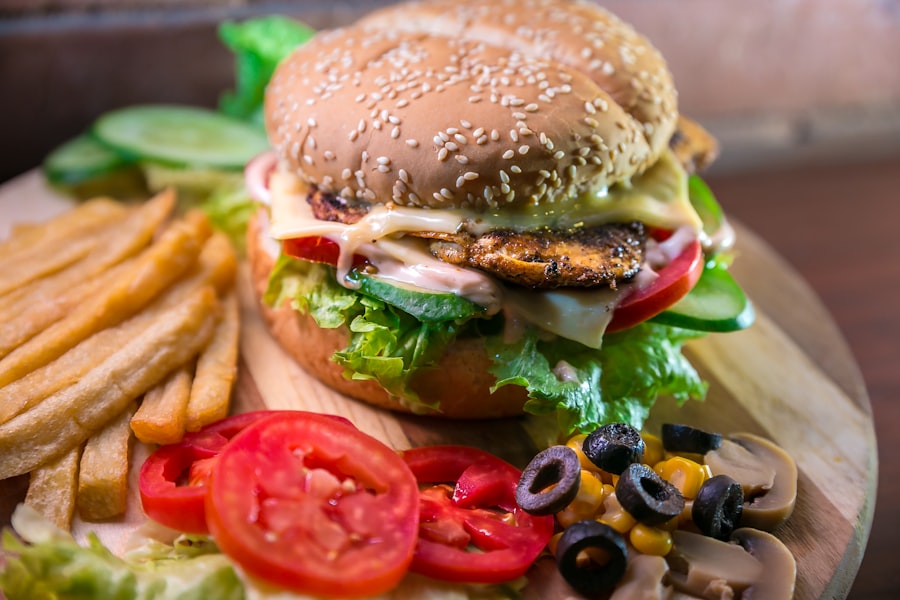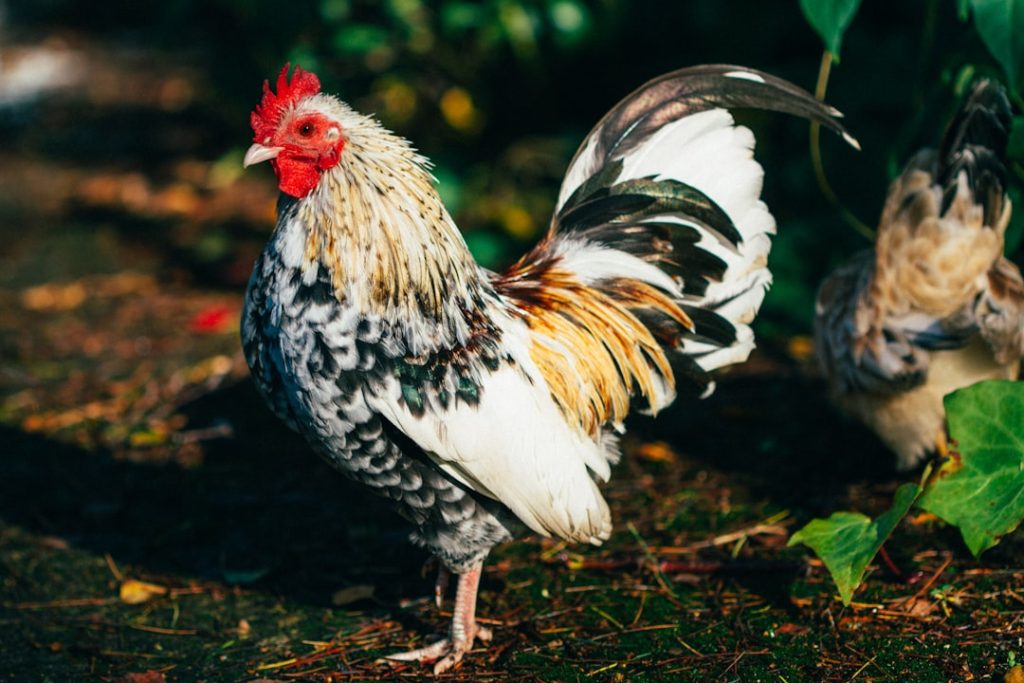Keeping chickens can be a rewarding and educational experience for individuals and families. Chickens provide a sustainable source of eggs and meat, as well as companionship. To successfully raise chickens, it is essential to create a safe and comfortable living environment, including a secure coop and access to fresh water and a balanced diet.
Understanding common challenges, predators, health issues, and nutritional needs is crucial for maintaining healthy chickens. Proper care and attention are necessary for chickens to thrive and become valuable additions to households or farms. Responsible chicken keeping requires commitment and knowledge.
Key considerations include providing adequate shelter, protection from predators, and addressing nutritional requirements. By understanding these aspects, chicken keepers can ensure their birds lead happy and healthy lives. The following sections will explore common challenges, predators, health issues, environmental factors, and nutritional needs associated with raising chickens.
Additionally, tips for keeping chickens alive and healthy will be provided to support successful chicken keeping practices.
Table of Contents
- 1 Common Challenges in Keeping Chickens Alive
- 2 Predators and Pests
- 3 Health Issues and Diseases
- 4 Environmental Factors
- 5 Nutritional Needs and Feeding
- 6 Tips for Keeping Chickens Alive and Healthy
- 7 FAQs
- 7.1 What are some common difficulties in keeping chickens alive?
- 7.2 How can predators be a threat to chickens?
- 7.3 What are some common diseases that can affect chickens?
- 7.4 How can extreme weather conditions impact chickens?
- 7.5 What are some key factors in providing adequate housing and nutrition for chickens?
Key Takeaways
- Keeping chickens can be a rewarding and enjoyable experience for both beginners and experienced poultry keepers.
- Common challenges in keeping chickens alive include providing adequate shelter, protection from predators, and maintaining a clean and healthy environment.
- Predators and pests such as foxes, raccoons, and mites can pose a threat to the well-being of chickens and should be carefully managed.
- Health issues and diseases such as respiratory infections and parasites can impact the overall health of chickens and require prompt attention and treatment.
- Environmental factors such as temperature, humidity, and ventilation play a crucial role in the well-being of chickens and should be carefully monitored and managed.
Common Challenges in Keeping Chickens Alive
Shelter and Protection
One of the most critical aspects of raising chickens is providing a secure coop that protects them from predators and the elements. A well-ventilated and clean coop is essential for preventing respiratory issues and diseases.
Nutrition and Health
Another challenge is ensuring that your chickens receive a balanced diet that meets their nutritional needs. Providing high-quality feed and access to fresh water at all times is vital for their health and well-being. Regular health checks and observation of their behavior can help identify any potential health issues early on, and providing appropriate veterinary care when needed is essential.
Managing the social dynamics within the flock can be challenging, as chickens have their own pecking order and hierarchy. Monitoring their behavior and intervening if any aggressive behavior becomes problematic is crucial. Additionally, managing environmental factors such as temperature and humidity can be challenging, especially in extreme weather conditions. Providing adequate ventilation and protection from harsh weather is essential for the chickens’ comfort and well-being.
Predators and Pests
Predators and pests pose a significant threat to the safety and well-being of chickens. Common predators include foxes, raccoons, hawks, and snakes, all of which are known to attack and kill chickens. It is important to secure the coop with sturdy fencing and locks to prevent these predators from gaining access.
Additionally, installing motion-activated lights or sound devices can help deter nocturnal predators. Regularly inspecting the coop for any signs of damage or potential entry points can also help prevent predator attacks. In addition to predators, pests such as mites, lice, and rodents can also pose a threat to chickens.
These pests can cause irritation, stress, and disease in chickens if left unchecked. Regularly cleaning the coop and using pest control measures such as diatomaceous earth or natural repellents can help keep these pests at bay. Providing dust baths for the chickens can also help them naturally control pests on their own.
By being proactive in preventing predator attacks and managing pests, you can help ensure the safety and well-being of your chickens.
Health Issues and Diseases
Chickens are susceptible to a variety of health issues and diseases that can impact their overall well-being. Respiratory infections are common among chickens, especially in poorly ventilated or overcrowded coops. Symptoms of respiratory infections include coughing, sneezing, nasal discharge, and difficulty breathing.
It is important to address these issues promptly by improving ventilation, reducing overcrowding, and providing appropriate veterinary care if necessary. Another common health issue in chickens is parasites such as mites, lice, and worms. These pests can cause irritation, anemia, and weight loss in chickens if left untreated.
Regularly inspecting the chickens for signs of parasites and providing appropriate treatment can help prevent these issues from becoming widespread within the flock. Additionally, maintaining a clean coop environment and practicing good hygiene can help reduce the risk of parasite infestations. In addition to respiratory infections and parasites, chickens are also susceptible to injuries such as cuts, bruises, and broken bones.
Providing a safe and well-maintained living environment can help reduce the risk of injuries. Additionally, promptly addressing any injuries with appropriate first aid and veterinary care can help prevent further complications.
Environmental Factors
Environmental factors such as temperature, humidity, and ventilation play a crucial role in the health and well-being of chickens. Chickens are sensitive to extreme temperatures and can suffer from heat stress or hypothermia if not provided with adequate shelter and protection. During hot weather, it is important to provide shade, access to cool water, and proper ventilation to help chickens regulate their body temperature.
In cold weather, providing insulated coops, heat lamps, and additional bedding can help keep chickens warm and comfortable. Humidity levels in the coop also need to be carefully managed to prevent respiratory issues and mold growth. Proper ventilation is essential for maintaining optimal humidity levels and air quality within the coop.
Regularly cleaning the coop and removing wet bedding can also help prevent moisture buildup. In addition to temperature and humidity, lighting is another important environmental factor to consider when keeping chickens. Chickens require a certain amount of daylight to maintain their natural circadian rhythms and egg production.
Providing supplemental lighting during the shorter days of winter can help ensure consistent egg production throughout the year.
Nutritional Needs and Feeding

Providing a Balanced Diet
A balanced diet is crucial for the overall health and well-being of chickens. This can be achieved by providing a combination of commercial feed, grains, fruits, vegetables, and access to insects or forage. Commercial feeds are formulated specifically for chickens and come in different formulations depending on their age and purpose, such as laying hens or meat birds.
Access to Fresh Water
In addition to a balanced diet, providing access to fresh water at all times is essential for maintaining hydration and overall health in chickens. Chickens require clean water for drinking as well as for regulating their body temperature through panting during hot weather.
Supplementing Their Diet
Supplementing their diet with grains, fruits, vegetables, and access to insects or forage can provide additional nutrients and enrichment for the chickens. However, it is important to avoid feeding them toxic or harmful foods such as avocado, chocolate, or raw beans.
Tips for Keeping Chickens Alive and Healthy
To ensure the well-being of your chickens, there are several tips that can help you keep them alive and healthy. First and foremost, providing a secure coop with sturdy fencing and locks can help protect them from predators. Regularly inspecting the coop for any signs of damage or potential entry points can also help prevent predator attacks.
Maintaining a clean living environment by regularly cleaning the coop, providing fresh bedding, and practicing good hygiene can help prevent respiratory infections, parasites, and other health issues in chickens. Monitoring their behavior for any signs of illness or injury can help identify potential health issues early on. Providing appropriate veterinary care when needed is essential for addressing any health concerns promptly.
Managing environmental factors such as temperature, humidity, ventilation, and lighting can help ensure the comfort and well-being of your chickens throughout the year. Meeting their nutritional needs by providing a balanced diet of commercial feed, grains, fruits, vegetables, fresh water, and access to insects or forage is essential for their overall health. By being proactive in addressing these various aspects of chicken care, you can help ensure that your flock remains happy, healthy, and thriving for years to come.
In conclusion, keeping chickens alive and healthy requires careful attention to their shelter, nutrition, health issues, environmental factors, predators, pests, and overall well-being. By understanding these various aspects of chicken care and implementing proactive measures to address potential challenges, you can create a safe and comfortable living environment for your flock. With proper care and attention, chickens can thrive and become a valuable addition to your household or farm.
If you’re having difficulties keeping chickens alive, you may want to consider adding geese to your flock. According to Poultry Wizard, geese can eat chicken feed and are relatively low-maintenance birds. They can also provide protection for your chickens and help keep predators at bay. Adding geese to your poultry setup could be a solution to some of the challenges you may be facing with keeping chickens alive.
FAQs
What are some common difficulties in keeping chickens alive?
Some common difficulties in keeping chickens alive include predators, disease, extreme weather conditions, and inadequate housing or nutrition.
How can predators be a threat to chickens?
Predators such as foxes, raccoons, hawks, and even domestic pets can pose a threat to chickens by attacking and killing them. It is important to secure the chicken coop and run to protect them from predators.
What are some common diseases that can affect chickens?
Common diseases that can affect chickens include Marek’s disease, coccidiosis, avian influenza, and Newcastle disease. It is important to practice good biosecurity and provide proper vaccinations to prevent the spread of diseases.
How can extreme weather conditions impact chickens?
Extreme weather conditions such as heatwaves, cold temperatures, and storms can impact chickens by causing stress, heatstroke, frostbite, or even death. Providing proper shelter, ventilation, and access to clean water is essential to help chickens cope with extreme weather.
What are some key factors in providing adequate housing and nutrition for chickens?
Adequate housing for chickens should include a secure coop and run, proper ventilation, nesting boxes, and roosting perches. Providing a balanced diet with access to fresh water, grit, and oyster shell is essential for their nutrition and overall health.
Meet Walter, the feathered-friend fanatic of Florida! Nestled in the sunshine state, Walter struts through life with his feathered companions, clucking his way to happiness. With a coop that’s fancier than a five-star hotel, he’s the Don Juan of the chicken world. When he’s not teaching his hens to do the cha-cha, you’ll find him in a heated debate with his prized rooster, Sir Clucks-a-Lot. Walter’s poultry passion is no yolk; he’s the sunny-side-up guy you never knew you needed in your flock of friends!







